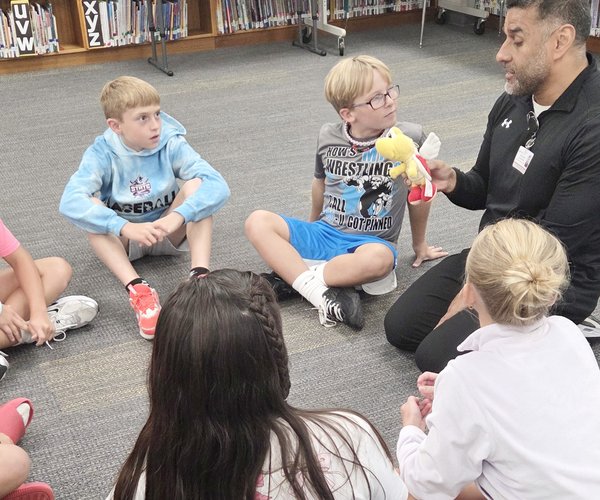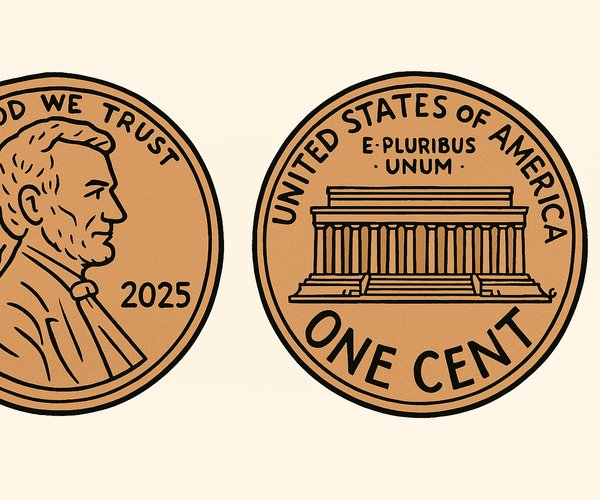With the possibility of federally funded TRIO programs facing budget cuts, Barton Community College’s Board of Trustees last week heard a report on one such program, Barton County Upward Bound (BCUB). This program sponsors 60 low-income and first-generation high school students from Great Bend, Hoisington and Ellinwood.
Program Director Kelsey Hall described BCUB as a college prep program. Its goal is to increase the rate at which its participants complete high school and enroll in and graduate from college.
“During the school year, we have workshops. We’ll bring them out here to campus. It can be anything from financial literacy to healthy relationships. We do lots of college visits. We go all over the state of Kansas, and we’ve actually been doing some cool ones out of state recently. We’ve got tutoring almost every weekend available for our students. We do lots of community service to get them out and about. We have a student leadership group, so we’ve been able to take them to some leadership conferences. And then we’re in the schools every week, so our students see us every single week,” Hall said.
During summer, students can participate in the six-week Residential Intensive Summer Experience (RISE) on the Barton campus. That looks good on a resume, Hall commented.
“We’re simulating what college is going to feel like,” she said.
The first week has a community service focus and the next four weeks simulate the college experience living in the dorms, eating cafeteria food in the Student Union, and attending classes during the day and in the evenings. Fun activities might include enjoying a giant slip and slide or attending the musical “Hamilton.” “It just very much depends on what’s available,” Hall said.
The final week includes a trip out of state for eligible students.
There is a long list of requirements for the students, Hall said, adding research shows that makes the program more effective.
“You’ve got to set that bar high, because college is a big thing they’re going for and they need to learn to work for those less tangible things. So we call them ‘fiery hoops.’” She said the student leadership crew helps design the criteria.
Student perspective
Kimberly Escobedo, a former BCUB student, said participation in the program helped her become more active in high school and beyond. She became the president of JAG - K (the Jobs for America's Graduates - Kansas program) at Great Bend High School and then became a Barton soccer player and student ambassador.
“It’s a great opportunity. They definitely encourage students to their highest level,” she said. Instead of hanging out with kids who don’t push themselves, BCUB has created a family of goal-oriented students with its tutoring and community service projects. “I want to push myself to get good grades.”
“It’s pretty fun,” she added, concluding, “It has impacted a lot of students. It helped me push for something that my parents didn’t get to experience.”
About TRIO
BCUB and Student Support Services are two of the four TRIO programs at Barton. These programs are funded through United States Department of Education grants and provide free services for eligible students to assist them in reaching their educational goals. There is a second Upward Bound program at Barton, Central Kansas Upward Bound, and there is the TRIO Central Kansas Education Opportunity Center.
Barton President Dr. Marcus Garstecki praised the TRIO programs, noting they have been under scrutiny at the federal level and there are “a lot of uncertainties about what the future holds.”
“They do phenomenal work; I’m very proud of the work that our team does.”
Future funding
Hall and BCUB Academic Coordinator Rebecca Kratzer talked about the funding issues.
BCUB is in its third year of a five-year grant cycle. Its annual budget is $309,505, with a projected five-year budget of $1,547,525.
“Our fiscal year is separate from Barton’s fiscal year. We begin on Sept. 1, so our current funding is through Aug. 31," Kratzer said. We have not received our federal funding yet for our next fiscal year.”
Normally, BCUB would have its funding by May but it was delayed. However, Barton’s other Upward Bound program has a June 1 start date and received its funding on May 30.
Barton’s Student Support Services program grants were rewritten just last year and all programs were re-funded, Kratzer said.
“We think it’s a good sign, but as of right now, we think we’ll at least have money for next year. But on the 2026-27 budget that Trump proposed, we are completely zeroed out. All of TRIO is completely zeroed out. So that’s our next battle.”
She added, “We’ve watched a lot of the Congressional budget hearings, and there is a large amount of bipartisan support. We have people on both sides fighting for TRIO and showing the research behind us – how effective we are and the different steps we have to do, the reports we turn in, all of those things. We are getting a lot of support, so hopefully Congress will proceed with funding us for the next year.”
Student success
Kratzer and Hall described some of the successes in the past year. Students join the program in high school, as early as their freshman year, and their progress is tracked for six years after high school graduation.
This year’s summer staff consisted of three BCUB alumni.
The Class of 2025 had 21 high school seniors and 19 took college classes at Barton for 443 credit hours. The average grade-point average was 3.65 and nine students had a 4.0 GPA, representing all A’s. The students included the Ellinwood High School valedictorian and the Hoisington High School salutatorian.
These seniors received several scholarships to continue their education.
One student received so many college credits that she is tutoring college students as she attends high school.





